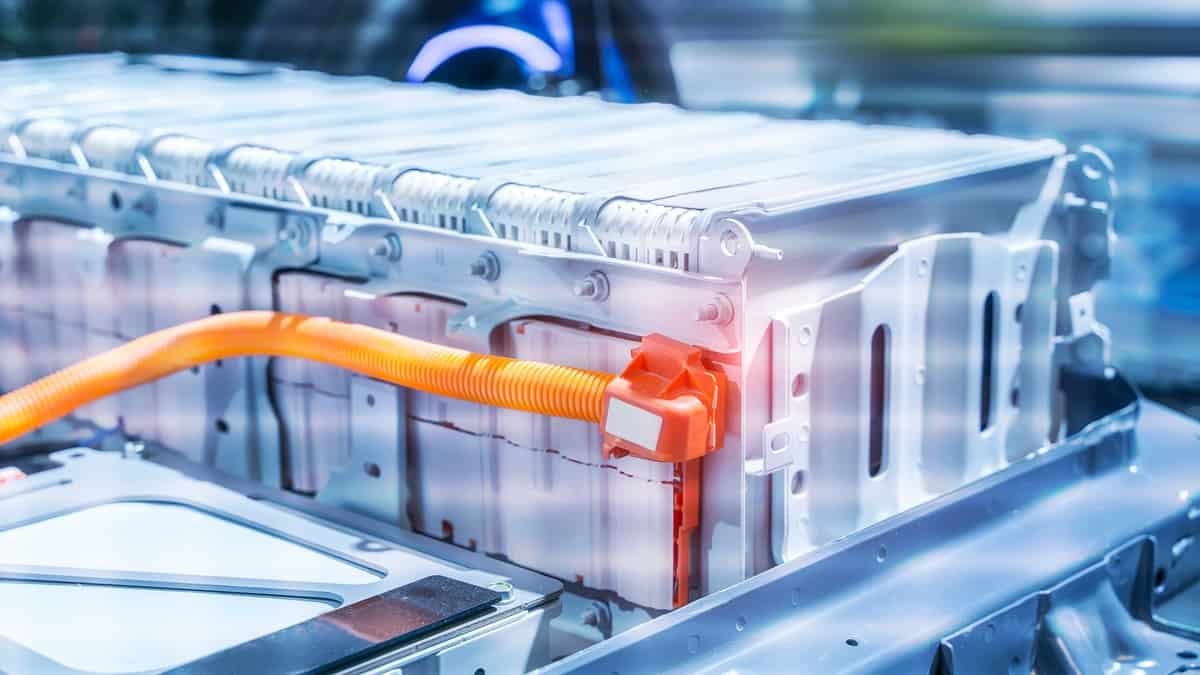American legacy automaker Ford and South Korean battery giants SK On and EcoPro BM will develop a new battery cathode production plant in Quebec. The project is a crucial part of the automaker’s strategy to secure the necessary battery materials for its electric vehicle production.
Project highlights
Ford, SK On, and EcoPro will invest a total of CAD $1.2 billion (USD $890 million) in the planned battery factory.
The battery materials produced at the 3 million sq. ft Quebec plant will supply Ford with the production of its next-gen EV models.
“…we’re excited to invest in this new facility to create a vertically integrated, closed-loop battery manufacturing supply chain in North America designed to help make electric vehicles more accessible for millions of people over time. We’re excited for the opportunity for our first-ever investment in Québec with a new facility that will help shape the EV ecosystem there.”
Bev Goodman, Ford of Canada President and CEO
The companies have already started the development at the new factory. They aim to begin production there by the first six months of 2026.
The partners expect the factory to hit a maximum annual production capacity of 45,000 tons of cathode active material.
Ford also claims the project would generate 345 new job positions in the Canadian province.
EcoPro will produce the battery cathode active materials in the form of nickel cobalt manganese. Its R&D team will also develop a sustainable and green approach to improve the battery’s performance and safety.
EcoPro CAM Canada will manage the daily production operations at the Quebec factory.
“By expanding here in North America, EcoProBM looks forward to globalizing our growth in cathode materials, which has been a unique strength of our company. We also are prepared to contribute to the community in Canada and Québec and contribute to the development of the local economy, including by hiring locally.”
Jae-hwan Joo, EcoProBM CEO
Meanwhile, Ford and SK On are the project’s investors. However, it is still waiting for the necessary regulatory approvals.
“Through the cathode JV, the three companies can have a stable supply of battery raw materials in North America. We will continue to work with our partners to lead electrification of the global auto market.”
Min-suk Sung, SK On Chief Commercial Officer
Battery boom in the US
Biden’s Inflation Reduction Act significantly boosted the electric vehicle battery industry in the US since its implementation in August 2022.
The legislation included major programs to provide subsidies for companies and customers supporting the shift to green energy.
Ford is one of the largest beneficiaries of the IRA’s subsidies. It previously announced a partnership with SK On to build three US battery cell factories for a maximum investment of nearly $15 billion. The companies expect the plant to hit an annual production capacity of 164 GWh.
Now, Ford is accelerating its efforts to improve its domestic battery supply chain to benefit from the EV tax credit under the IRA.
As EV-a2z previously reported, the US Government is offering an EV tax credit of up to $7,500. However, 60% of the model’s battery components must be locally produced in 2024 to secure the $3,750 federal tax credit. The requirement would rise to 100% by 2029.
Meanwhile, the other $3,750 will be available for models sourcing 50% of their critical materials from the US or a free trade agreement nation in 2024. That percentage will also increase to 80% from 2027 to 2032.
See Also:
- Ford secures $9.2 billion loan to accelerate electric vehicle battery production
- Ford forms partnership with LGES and Koç Holding for EV battery plant development in Europe
- Ford halts F-150 Lightning production due to potential battery issue
- Ford announces plans to license CATL’s electric vehicle battery technology
- Ford and a Chinese partner plan to construct an EV battery plant in Michigan
The wide adoption of electric vehicles has been progressive in the US due to the IRA’s implementation. Automakers and suppliers race to establish domestic production to secure access to federal tax credits.

